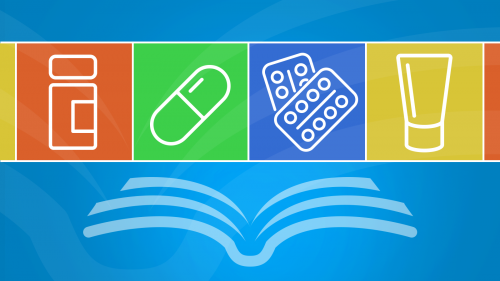Image

By: Theresa M. Michele, M.D., Director, Office of Nonprescription Drugs, Center for Drug Evaluation and Research
240 million Americans use over-the-counter (OTC) drugs every year. OTC drugs are available to consumers without a prescription and can be safely and effectively used without the supervision of a health care provider. The beginning of an exciting new chapter in OTC drug history began in March when the President signed into law H.R. 748, the “Coronavirus Aid, Relief, and Economic Security Act” or “CARES Act.” The act includes important reforms that modernize the way certain OTC drugs are regulated in the United States.
OTC drugs have long provided an efficient, low-cost way for Americans to manage every-day health needs, and they play an increasingly vital role in our health care system. The vast array of OTC drugs includes cough and cold medicines, fever reducers, sunscreens, pain relievers, antacids, and many more. They can be purchased in many online and retail outlets including pharmacies, grocery stores, and convenience stores.
The FDA regulates OTC drugs to ensure that they are safe and effective for their intended use. There are two ways to bring an OTC drug to market in the United States. One way is through the drug application process (New Drug Application (NDA) and Abbreviated New Drug Application (ANDA)). The other way is through the OTC Drug Review process (also known as the OTC monograph). Of the more than 100,000 marketed OTC drugs, most are marketed through the OTC Drug Review Process, which is modernized by the new law.
In 1972, the FDA established the OTC Drug Review to evaluate the safety and effectiveness of hundreds of thousands of OTC drug products that were on the market at that time. Before the CARES Act, the OTC Drug Review consisted of a three-phase public rulemaking process to establish OTC monographs. An OTC monograph is a "rule book" of conditions for each therapeutic category that describes the active ingredients, uses (indications), doses, route of administration, labeling, and testing for an OTC drug to be considered generally recognized as safe and effective. OTC monograph drugs that meet these OTC monograph requirements and other applicable drug requirements do not need FDA review and approval before being marketed to consumers. By not requiring premarket approval, there is a low regulatory burden for industry to market OTC drugs and that helps to keep OTC drug costs low to consumers. These OTC monographs encompass approximately 800 different active ingredients with more than 1,400 different uses.
Although a wide variety of OTC drugs were successfully brought to market under the OTC Drug Review prior to the passage of the CARES Act, there were challenges with the nearly 50-year-old process. Many OTC monographs need to be updated. Prior to passage of the CARES Act, updating or changing an OTC monograph required notice-and-comment rulemaking. Rulemaking is a slow, burdensome process that made it challenging for the FDA to quickly make changes to OTC monographs even when addressing significant safety concerns. Rulemaking also created a hurdle to bring OTC monograph drug innovations to market in the fast-paced and evolving environment of medical science.
That’s why this new law is so important and exciting. The CARES Act includes OTC monograph reform provisions granting the FDA transformative new authorities that will meaningfully advance our efforts to modernize the OTC monograph drug development and review process under the OTC Drug Review. It replaces the rulemaking process with a streamlined administrative order process intended to improve efficiency, timeliness and predictability. It spurs OTC drug innovations that promote consumer choice and allows the FDA to address safety issues rapidly to enable better protection of public health. The law also provides the FDA with the authority to collect user fees from manufacturers of OTC monograph drugs. The fees will provide the FDA with resources necessary to implement and sustain these policy reforms.
The FDA is committed to using these new tools to promote innovation in the OTC marketplace and continue to ensure the safety and effectiveness of OTC monograph drugs. We’re confident that these reforms will help advance our efforts to protect the public health. We look forward to working with industry and other stakeholders to ensure a smooth transition to this modernized OTC monograph process.
Additional details about process changes and goals can be found in the CARES Act and the Over-the-Counter Monograph User Fee Program Performance Goals and Procedures - Fiscal Years 2018-2022, which outlines goal dates for various FDA activities related to OTC monograph reform. In the coming months, we will provide updates as our work continues under this important new law.
"exciting" - Google News
August 06, 2020 at 07:00AM
https://ift.tt/3ifUwh0
An Exciting New Chapter in OTC Drug History: OTC Monograph Reform - FDA.gov
"exciting" - Google News
https://ift.tt/2GLT7hy
Shoes Man Tutorial
Pos News Update
Meme Update
Korean Entertainment News
Japan News Update
Bagikan Berita Ini















0 Response to "An Exciting New Chapter in OTC Drug History: OTC Monograph Reform - FDA.gov"
Post a Comment